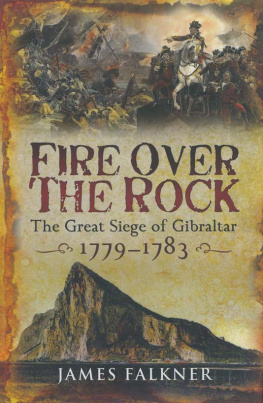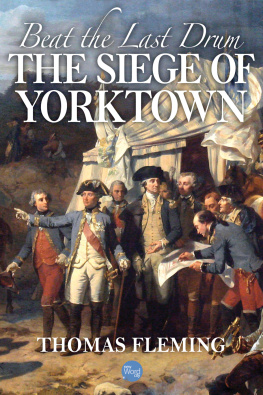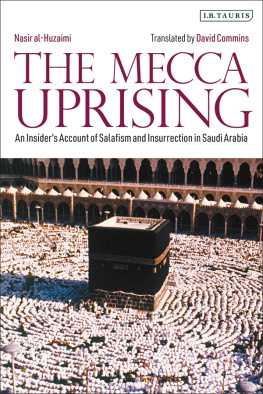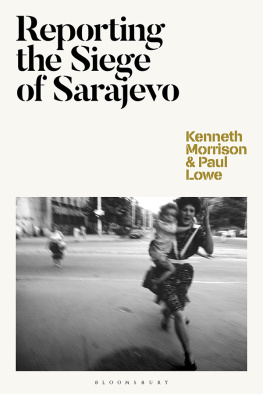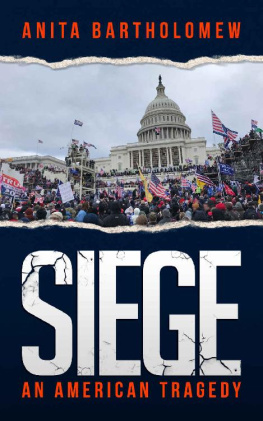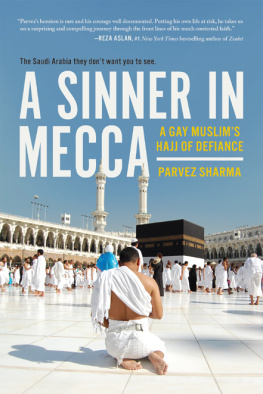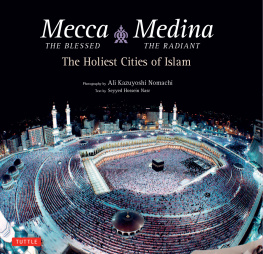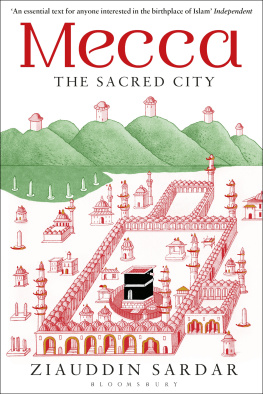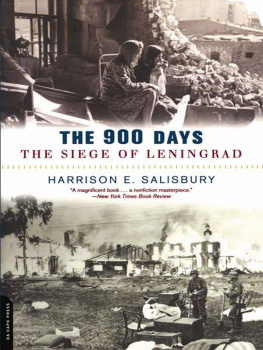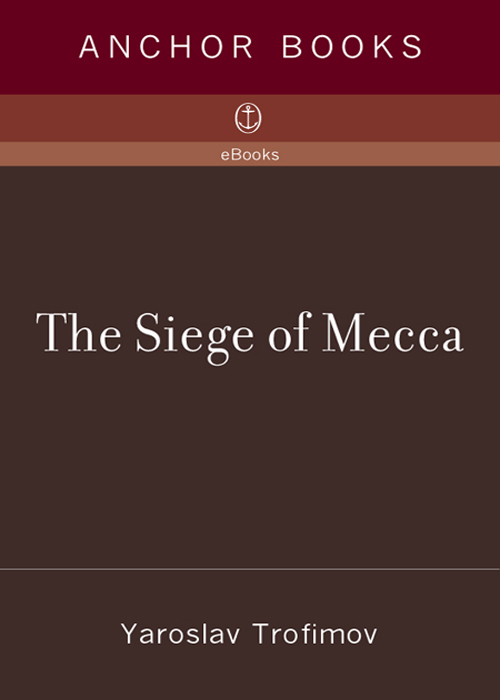
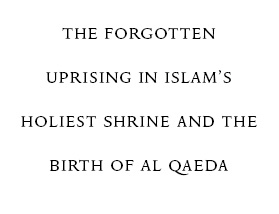
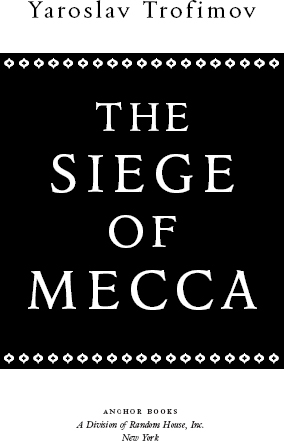
CONTENTS
To Nicole, Jonathan, and Susi,
with love

Cast of Principal Characters
(Positions as held in 1979)

SAUDI ARABIA
Prince Abdullah: Commander of the Saudi National Guard.
Prince Bandar bin Sultan: Son of Prince Sultan, future Saudi ambassador in Washington.
Abdelaziz Bin Baz: Chairman of Saudi Arabias Department of Scientific Research and Guidance, a ministerial-level clerical body in charge of interpreting Islamic law.
Salem Bin Laden: Head of the Bin Laden construction company that expanded the Grand Mosque in Mecca; Osama Bin Ladens brother.
Brigadier-General Faleh al Dhaheri: Commander of the Saudi Armys King Abdelaziz Armored Brigade.
Mohammed Elias: A senior Egyptian preacher who participated in the Mecca uprising.
Crown Prince Fahd: Saudi Arabias day-to-day ruler.
Faisal Mohammed Faisal: One of the most senior Saudi leaders of the Mecca uprising.
Colonel Nasser al Homaid: Commander of the Saudi Armys Sixth Paratroop Battalion.
Nasser Ibn Rashed: Most senior cleric in charge of the Holy Mosques in Mecca and Medina.
Mohammed Ibn Subeil: Imam of the Grand Mosque in Mecca and Ibn Rasheds deputy.
King Khaled: King of Saudi Arabia.
Prince Nayef: Minister of the interior of Saudi Arabia.
Major Mohammed Zuweid al Nefai: Operations officer of the Saudi Interior Ministry Special Security Force.
Mohammed Abdullah al Qahtani: Juhayman al Uteybis brother-in-law and the alleged Mahdi.
Lieutenant Abdulaziz Qudheibi: Platoon commander of the Sixth Paratroop Battalion.
Hassan al Saffar: Religious leader of Saudi Shiites in the Eastern Province.
Prince Sultan: Minister of defense and aviation of Saudi Arabia.
Prince Turki al Faisal: Chief of Saudi Arabias General Intelligence Directorate.
Juhayman bin Seif al Uteybi: retired corporal in the Saudi National Guard and chief leader of the Mecca uprising.
Ahmed Zaki Yamani: Saudi Arabias minister of oil.
Mohammed Abduh Yamani: Saudi Arabias minister of information.
UNITED STATES
Zbigniew Brzezinski: President Carters national security adviser.
President Jimmy Carter: President of the United States of America.
Herbert Hagerty: Chief political officer at the U.S. embassy in Pakistan.
Mark Hambley: Political officer at the U.S. embassy in Saudi Arabia.
Ralph Lindstrom: U.S. consul general in Dhahran, Saudi Arabia.
Jack McCavitt: Central Intelligence Agency station chief in Tripoli, Libya.
Cyrus Vance: U.S. secretary of state.
Ambassador John C. West: U.S. ambassador to Saudi Arabia.
FRANCE
Captain Paul Barril: Deputy commander of the French commando unit Groupe dIntervention de la Gendarmerie Nationale (GIGN). Head of the GIGN mission dispatched to Saudi Arabia during the Mecca uprising.
President Valry Giscard dEstaing: President of the French Republic.
Count Alexandre de Marenches: Head of French intelligence agency Service de Documentation Extrieure et de Contre-Espionage (SDECE).
Christian Lambert: Member of the GIGN mission dispatched to Saudi Arabia.
Captain Christian Prouteau: Commander of the GIGN.
Ignace Wodecki: Member of the GIGN mission dispatched to Saudi Arabia.
OTHER COUNTRIES
Mehmet Ali Agca: Turkish militant who tried to assassinate Pope John Paul II.
Leonid Brezhnev: Leader of the Soviet Union.
Colonel Moammar Ghadhafi: Revolutionary leader of Libya.
Babrak Karmal: Soviet-installed leader of Afghanistan.
Ayatollah Ruhollah Khomeini: Leader of the 1979 Islamic revolution in Iran.
General Mohammed Zia ul Haq: President of Pakistan.

A Note on Arab Names

N ames in Arabia usually consist of four parts: the given name and the names of the father, of the grandfather, and of the tribe or family. They are separated by the prepositions bin, ibn, or al, which usually, but not always, mean son of.
Mohammed bin Abdullah, Mohammed al Abdullah, Mohammed ibn Abdullah, and the preposition-less Mohammed Abdullah are different ways of identifying the same person, Abdullahs son Mohammed. Abdullah in this example could also be known simply as Abu Mohammed, with abu the Arabic for father.
As it would be too unwieldy to use the full Arabic names throughout the book, I followed the common usage, which, sometimes without much logic, varies from case to case. On some occasions, this meant employing just the first two parts of a name; on others, the first and the last. Spellings were simplified to make proper names more easily recognizable to non-Arab readers.
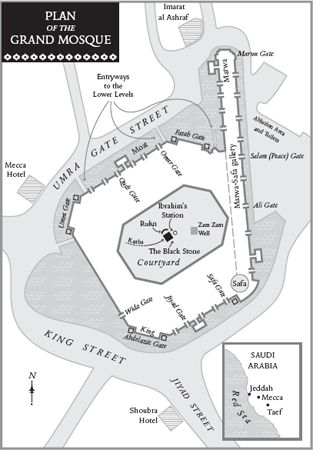

INTRODUCTION

T he holy city of Mecca looked deceptively calm as the first dawn of the new century started to break behind craggy mountains.
Splashing his face with cold water, the Grand Mosques bearded imam fastened a beige-hued cloak over his shoulders and muttered praises to the Lord. The time to lead the mornings first prayer was minutes away.
Under his window, the mosques floodlit courtyard was filling up quickly. The hajj pilgrimage season, when this stadium-size enclosure was traversed by more than a million worshippers, had already ended. Yet Mecca remained jam-packed with the faithful. Many of them had spent the night inside Islams holiest shrine, curling up on wool carpets in the Grand Mosques multistory labyrinth of nearly a thousand rooms.
As usual, these worshippers camped along with their bundles, mattresses, and suitcases that nobody had bothered to check. Following custom, many hauled in wooden coffins, hoping that the imam would bestow on decomposing relatives inside the precious blessings that can only be received in such a sacred precinct.
Today, some of these coffins contained an unusual cargo: Kalashnikov assault rifles, Belgian-made FN-FAL guns, bullet belts, and an assortment of pistols.
The men who had smuggled this arsenal into the mosque sought an ambitious goal: to reverse the flow of world history, sparking a global war that would finally lead to Islams total victory and to a destruction of arrogant Christians and Jews.
Next page

